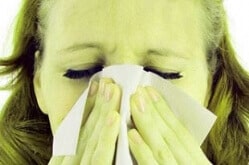
According to the Centers for Disease Control and Prevention (CDC), “as of late December, all national key flu indicators are elevated and about half of the country is experiencing high flu activity.” And while flu activity typically peaks December through February, “seasonal flu activity can begin as early as October and continue to occur as late as May.”
Also according to the CDC, there are certain groups that are more susceptible to developing flu-related complications: children younger than five, but especially children younger than two years old; adults 65 years of age and older; pregnant women (and women up to two weeks post partum); and those living in nursing homes and other long-term care facilities.
But what if you have a family member or close friend who is staying at a hospital or who lives in a skilled nursing facility? Those individuals need visits from loved ones and friends. However, since these people can more easily catch illnesses or get sicker than usual from the illness that you may bring with you on your visit, it is important to keep everyone safe and healthy by following these simple tips:
If you have a cold or the flu, stay home. Nursing home residents and hospital patients can be at higher risk for infection. Therefore, if you are not feeling well, a phone call is a better way to let them know you care. Set up a later time to visit when you are well.
Wash your hands properly. Many types of illness, from the common cold to more serious infections, are spread when people fail to wash their hands properly. When you visit a nursing home or hospital, wash your hands with soap and water for at least 15–20 seconds or use an alcohol-based hand sanitizer before hugging or touching the people you are visiting, and especially after using the restroom and before eating. Make sure your children wash their hands as well. Some rooms are equipped with alcohol-based hand sanitizer dispensers, too. Look for them near the door or bathroom.
Especially during this time of the year when those living in nursing home are more often confined indoors, visitors can raise their spirits, and following these tips will help everyone enjoy safe and healthy visits.
(Based on information provided by the Centers for Disease Control and Prevention, www.cdc.gov.)